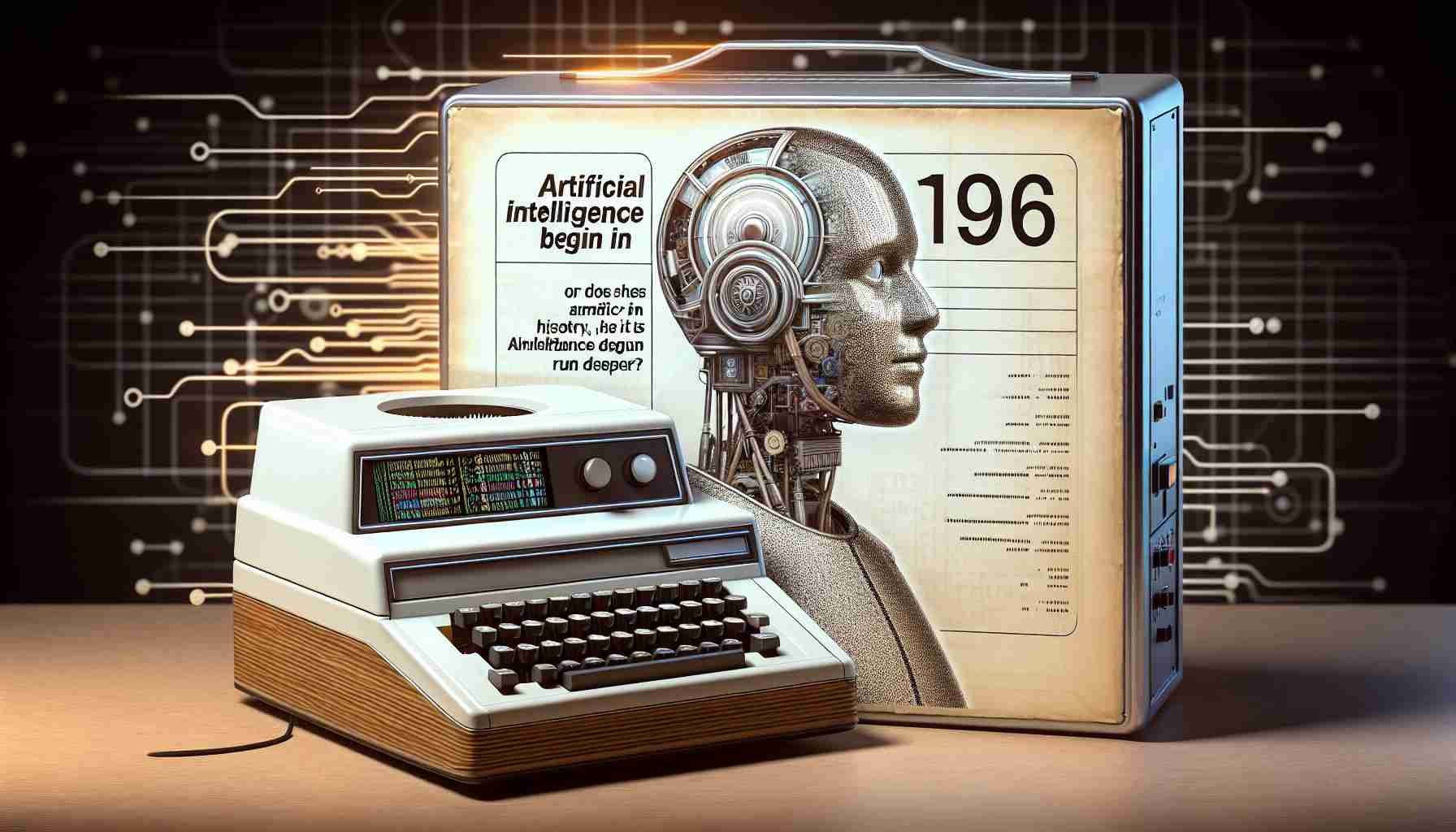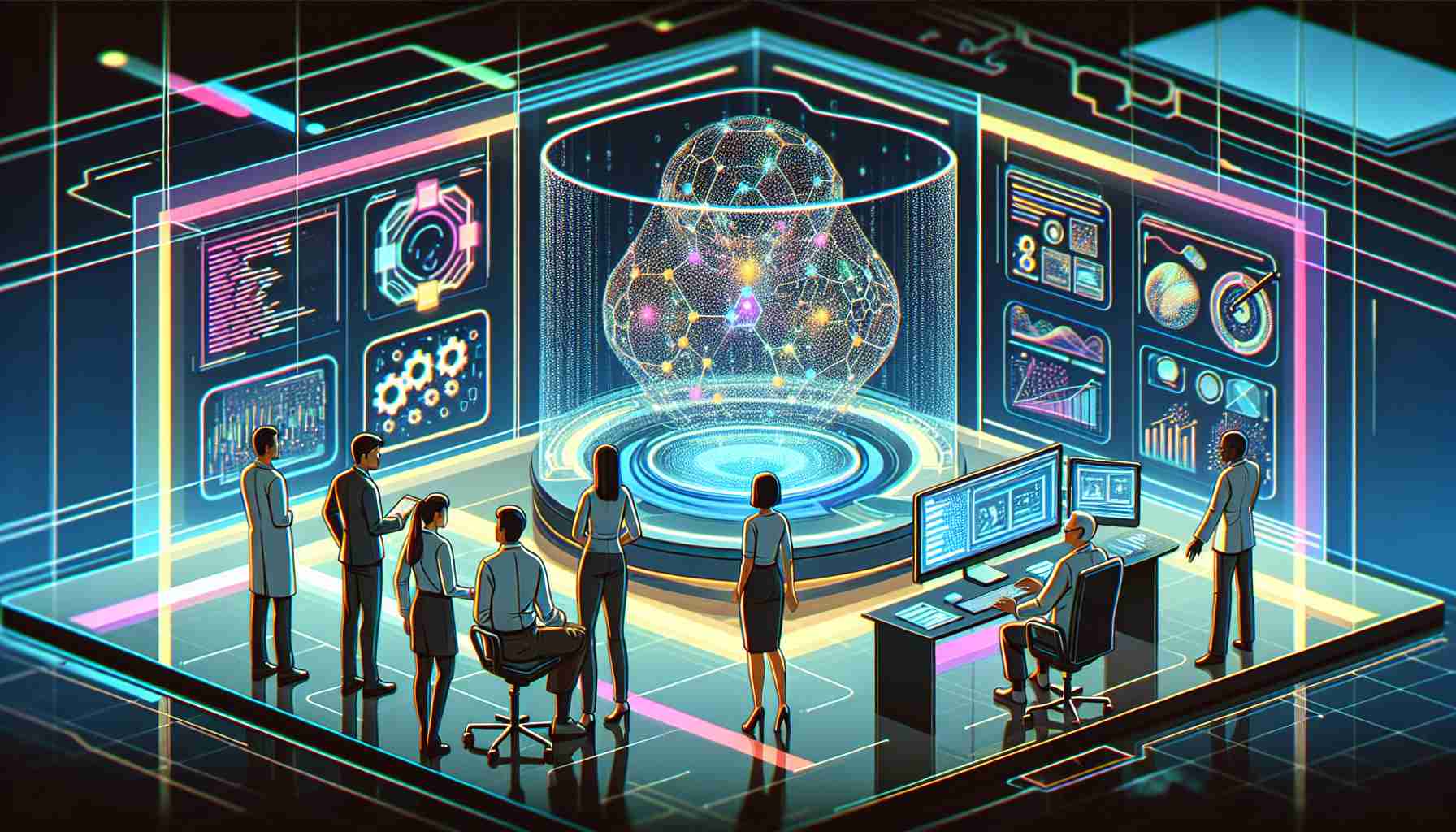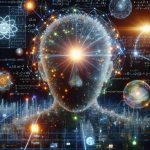The term “artificial intelligence” first emerged at a famed summer workshop at Dartmouth College in 1956, often heralded as the birthplace of AI. This convention, organized by John McCarthy, Marvin Minsky, Nathaniel Rochester, and Claude Shannon, marked the formal inception of AI as a distinct field of study. It was here that McCarthy coined the term “artificial intelligence,” setting a definitive milestone in computer science history.
However, tracing the concept of machines exhibiting intelligence unravels a much older story. The groundwork for AI can be seen in the early 20th century with Alan Turing’s theoretical explorations. His 1950 paper, “Computing Machinery and Intelligence,” introduced the world to the Turing Test, a pivotal concept in evaluating a machine’s ability to exhibit intelligent behavior equivalent to, or indistinguishable from, that of a human.
Exploring even further back, the Enlightenment period bore witness to philosophical inquiries into whether the human mind could be mechanized. Philosophers like René Descartes and inventors like Charles Babbage laid out ideas that today we recognize as foundational to AI.
While the daring endeavors of the 1956 Dartmouth workshop ignited the first wave of true AI research, the pathway leading to that point is rich and varied, illuminating humanity’s age-old fascination with creating intelligent machines. Unfolding from ancient myths to modern algorithms, the evolution of AI reveals humanity’s persistent pursuit of mimicking its own intelligence through artificial means, encouraging both innovation and introspection.
AI: Friend or Foe? Discover the Hidden Impact on Modern Life
While the inception of artificial intelligence is a well-trodden tale, little is discussed about its sweeping effects on our lives today. Did you know that AI plays a pivotal role in shaping the decisions you make each day, often without your awareness? From curating content on social media to determining credit scores, AI systems touch numerous facets of daily living.
The Unseen Influencer: An interesting fact is that AI is responsible for up to 70% of what you see on streaming platforms like Netflix. It doesn’t stop at entertainment; in healthcare, AI aids in diagnosing diseases at unprecedented speeds, potentially saving countless lives. How does AI determine which medications are best for a patient? By analyzing vast datasets, predicting outcomes more effectively than many traditional methods.
AI and Employment: AI’s capabilities also stir controversies, especially regarding employment. While it enhances productivity and innovation, it raises questions about job displacement. Will AI platforms render certain human roles obsolete or create new opportunities? As industries evolve, many professions face transformative changes, pushing workers to adapt to new skill sets.
The Global Divide: AI’s rapid deployment can accentuate disparities between countries that can afford cutting-edge technologies and those that cannot. Such technological gaps influence economic growth and global relations. Can AI be an equalizer or will it deepen existing inequities?
To delve deeper into the world of AI and its implications, visit IBM or Microsoft. These companies are at the forefront of AI research and offer comprehensive resources on how AI is reshaping our world.






















